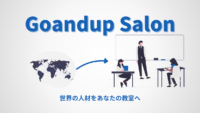A peculiar expression in Japanese! The meaning and usage of "shussebarai" and its English expression

Have you ever heard of the term "shussebarai"? It is a Japanese word that is used mainly between people who are close to each other. This word is an expression unique to the Japanese language and is used mainly between people who are good friends. For example, it is used when a subordinate asks something of his/her superior, or when friends borrow money from each other that they cannot pay back now, with the meaning of "I will definitely pay you back when I get promoted someday.
In this article, we will introduce the meaning and usage of "出世払い" used in business situations, specific example sentences, and even English expressions, paraphrases, and thesauruses. By correctly understanding the usage of the word "出世払い", you will be able to have a smoother conversation in business situations.
▼Goandup Picks Click here for recommended articles!
- Required before studying abroad! Goandup Nihongo+, an online Japanese language learning service
- This page introduces services for foreigners who wish to study in Japan or improve their Japanese language skills to learn Japanese online.
- Goandup Salon" community for foreigners living in Japan
- We introduce an online community where foreigners living in Japan can exchange information and interact with each other to support their life in Japan.
- Goandup Study" supports foreigners who want to study in Japan.
- This section introduces study abroad support services that provide comprehensive support to foreigners who wish to study in Japan, from preparation for study abroad to living in Japan.
- Where can I buy a prepaid SIM in Japan? Recommended SIM cards for foreigners are also introduced.
- How to purchase a prepaid SIM and suitable SIM cards for foreigners.
- The Complete Guide to Pocket Wi-Fi in Japan for Foreigners!
- We introduce how to select and recommend pocket Wi-Fi products that can be used conveniently in Japan.
- The Complete Guide to Finding a Job in Japan! Finding a job, changing jobs, and part-time work for foreigners
- This site provides foreigners who want to work in Japan with comprehensive information on how to find a job, recommended job sites, and other information necessary to find a job.
What does "shussebarai" mean?

The term "career payment" refers to the repayment of borrowed money after one has achieved success or advancement. The promise itself may also be referred to as a "career payment.
The term "promotion" refers to attaining a higher social position or status, such as a promotion or advancement within a company, or taking on a supervisor or leadership position.
In other words, "career advancement" refers to a promise to pay back the borrowed money when the borrower achieves success or success in the future, even if repayment is difficult at this point in time. This promise demonstrates the borrower's desire for growth and success, as well as his or her strong will to repay the loan.
On the other hand, it can be said that the party requesting the "payout" is also recognizing the potential of the other party and expressing support. Through the lending and borrowing of money, a relationship of mutual trust can be established.
English expressions for shussebarai
Izukebai" is an expression peculiar to the Japanese language, and there is no direct English equivalent. However, the following English expression can be used to explain the meaning of "deisei pay".
- "Pay me back when you've made it big."
- "Promise to pay up in the future when one succeeds in life."
- "I'll lend you the money now, but you can pay me back once you've achieved success, I'll lend you the money now, but you can pay me back once you've achieved success.)
- "Consider it a loan that you can repay when you've climbed the ladder of success." )
These expressions are useful in explaining the concept of "career advancement payment" in English. However, the practice of "career advancement payment" is not very familiar in English-speaking cultures, so additional explanation may be necessary in some situations.
In addition, it is important to be flexible in the way you say "pay up" in English conversation, referring to the above expressions but adapting them to suit the person you are speaking to.
Examples of shussebarai usage

Although "dekasei" is sometimes used in business situations, it is mainly used between close friends. Here are some specific usages
Example (1) "This failure, please make it pay for your career. I will make up for it."
This is an expression used by a subordinate to his or her superior when the subordinate has made a mistake or caused a problem in the workplace. By using "dekasei pay," you show that you acknowledge your failure and are prepared to take responsibility for it, that you accept this failure with humility, and that you have a strong will not to repeat the same mistake again. It also indicates that you are committed to solving problems and paying for them through personal growth and advancement, and that you expect your superiors to be generous.
When you don't have the means to thank them now or are in a situation that is beyond your control, you can use the expression "please pay me back for my career" as a way of saying, "I will grow up and pay you back someday.
Also, in situations where friends ask each other to make a big wish or to solve a problem, saying "by paying for your services" will show your strong intention to repay the favor someday.
Example (2), "You can pay for this lunch with a promotion."
It is sometimes used by supervisors toward their subordinates. If a subordinate is in a difficult financial situation, the supervisor can show his/her support for the subordinate's growth by buying lunch for the subordinate with a "promotion payment.
However, it is common practice not to use the expression "pay for success" in meetings and business negotiations with business partners.
These days, "pay-outs" are used not only for lending and borrowing money, but also for situations such as "treats" and "paying in lieu of". The fact that there is no definite date for repayment allows the other party to support you without hesitation.
It can also mean, "Give it back to me when you reach a higher status," but in most cases it is used to express the sincere hope that the recipient will grow.
Paraphrases and synonyms for shussebarai

Analogous terms for "pay out" include "prior agreement," "believe agreement," and "advance agreement," and their meaning is that they indicate a relationship that is promised in advance.
In addition, to rephrase the word "pay out" in the aforementioned example sentence, it can be expressed as follows.
Example sentence (1): "This failure is my responsibility. I cannot take it back now, but I will show it with results in the future when I am sure I can recover from it."
Example (2): "Lunch today is on me. I look forward to the day when you succeed and take me to lunch."
These paraphrases indicate that "出世払い" is a word that promises future success. The word "dezuke payment" is unique in that it expresses a prior promise, but especially in that it refers to a promise conditional on future success or advancement. Thus, based on the essential meaning of "dezei pay," it is important to choose the appropriate word for the situation.
Notes on the use of shussebarai

The following points should be noted when using "pay out"
First of all, "dekasei-bai" is a term used with people with whom you have established a certain degree of trust. Avoid using "dezeppai" with people you have never met before or with whom you are not very close. It may make them feel uncomfortable or give a frivolous impression.
Also, as in example (2) above, when you say to yourself, "I'll pay you back." means, in most cases, "You don't have to pay me back" or "It's on me. It is not appropriate to use "dezeppayment" with the intention of making the other party owe you something.
Furthermore, "dekasei pay" is also a term that foreshadows the future success of the other party. Using "dekasei pay" in a situation where you do not recognize and support the other party's abilities may be considered rude, as if you are making fun of them.
In addition, a "payout" is only a verbal promise. Since it is not legally binding, it is wise not to use it for large monetary loans or borrowings in order to avoid problems.
Thus, it is important to use "pay it forward" appropriately, considering your relationship with the other party and the situation. If used well, it is a wonderful word that can deepen the relationship of trust with the other party and support each other's growth.
Serious employment support to help you realize your dream of working in Japan!

Do you want to work in Japan?
Let us "Goandup" make that dream a reality!
【 Program Features 】
✅ JLPT N3 level Japanese language acquisition
✅ Thorough preparation for the specific skills test
✅ Full support for job hunting in Japan
Business-focused one-on-one lessons will help you find a job in Japan in the shortest possible time.
【 Program Menu 】
- Individual Japanese language lessons
- Intensive curriculum to obtain N3, especially specialized lessons for business Japanese that can be used at work.
- Intensive curriculum to obtain N3, especially specialized lessons for business Japanese that can be used at work.
- Preparation for the Specific Skills Test
- Customized materials for specific skill tests will be used to focus on frequently asked questions and learning to pass the test.
- Customized materials for specific skill tests will be used to focus on frequently asked questions and learning to pass the test.
- Resume and CV support
- To create resumes and CVs tailored to Japanese corporate culture, and to brush up on self-promotion and motivation for application.
- To create resumes and CVs tailored to Japanese corporate culture, and to brush up on self-promotion and motivation for application.
- Interview Preparation
- Guidance on areas for improvement through mock interviews and feedback based on corporate interview scenarios. Learn interview etiquette and behavior unique to Japan.
- Guidance on areas for improvement through mock interviews and feedback based on corporate interview scenarios. Learn interview etiquette and behavior unique to Japan.
- career consulting
- Provide introductions to companies that match the participant's career goals, select companies to apply to, and provide advice on the level of knowledge required by the companies to which the participant is applying.
- Provide introductions to companies that match the participant's career goals, select companies to apply to, and provide advice on the level of knowledge required by the companies to which the participant is applying.
- Chat Support
- In addition to one-on-one individual lessons, we also accept casual questions via DM (visa application, living support, assistance in finding a room, etc.).
If you are serious about your career in Japan, join us now!
▶︎ for more informationclick here.
We will do our best to support your success in Japan!
summary
This article details the meaning and usage of the term "dekasei".
The term "dekasei" is used primarily between people who are close to each other. Avoid asking someone you have never met before or with whom you are not close to to ask for a "dekase payment". If not used appropriately, it may make the other person feel uncomfortable or give the impression of being frivolous.
The phrase "rise to the occasion" is often said by someone who wishes you well in your growth and success. It is usually used by someone who supports you, such as a boss, a senior colleague, or a friend.
If you are in a position to have subordinates in the future, it would be wonderful to say, "I'll pay for your career" as a way of expressing your desire for their growth. However, it is important to determine if the relationship is one in which "dekase payment" can be used appropriately. Try to understand its essential meaning and then use it according to the situation.
Your support will help us!
Thank you for visiting Goandup Picks. Our mission is to provide you with more useful information to show the world what Japan has to offer.
Your support will help us to further enhance our activities, so please support us!






